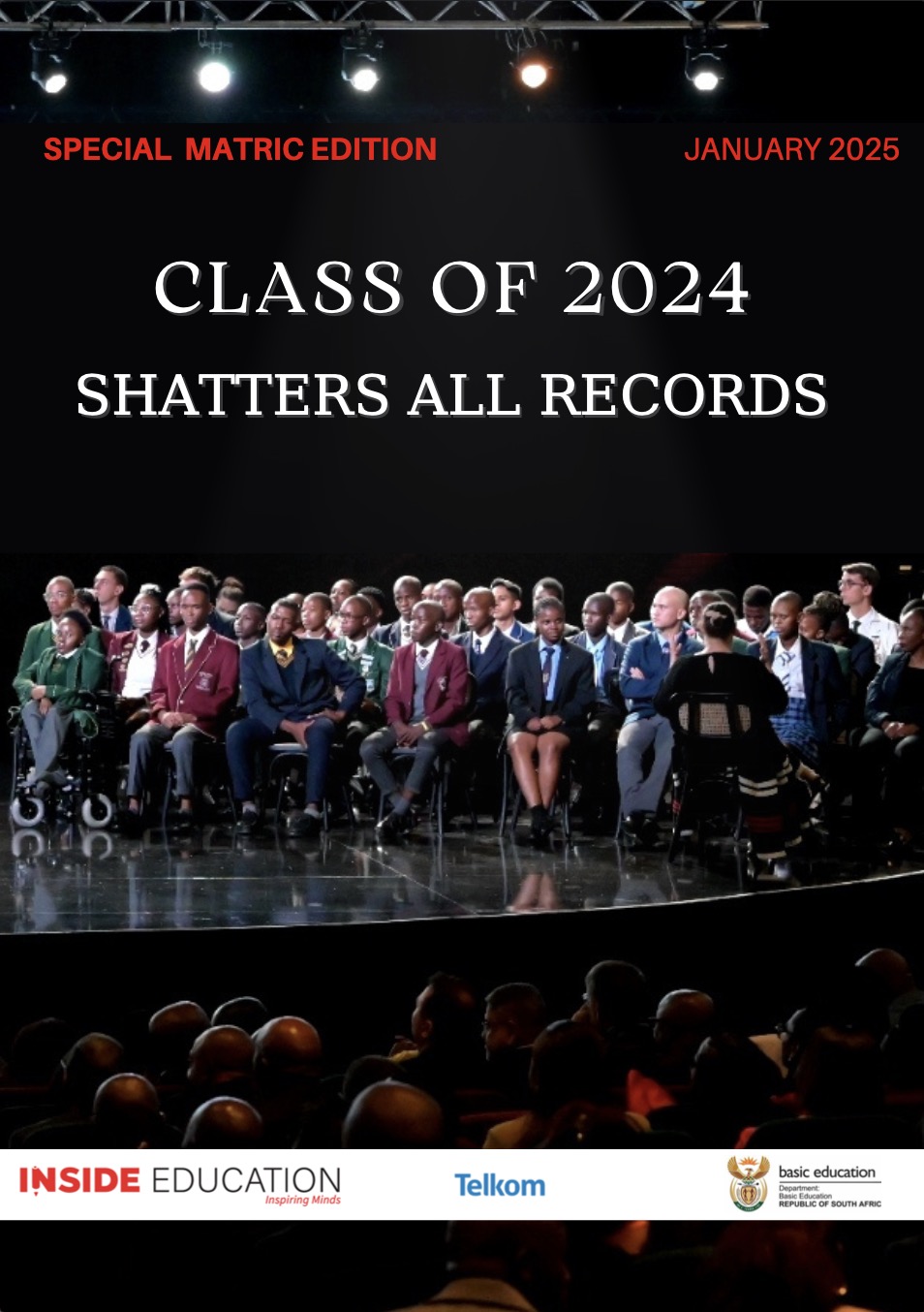INSIDE EDUCATION DEBATE|
Top unionists divided over calls to close schools
MANDLA MTHEMBU: AGAINST CLOSURE OF SCHOOLS
THE National Alliance of Independent Schools Associations (NAISA) is in favour of schools continuing to open as planned. Our reasons for this are the many risks attached to children not attending school. It must be noted that NAISA serves a broad spectrum of independent schools Associations and some of these Associations serve both Independent and public schools.
As a result, NAISA is aware of the challenges facing both these sectors (Public and Independent).
The costs of school closures are well documented with research from around the world. The scientific research on the effect of COVID-19 on children is also well documented especially the fact that it has a negligible impact on children’s physical health if at all.
We acknowledge the high level of teacher anxiety and stress during this time but are concerned that these may overshadow the best interests of the child.
Children’s well-being, protection and education are at grave risk from COVID-19.
Parents/caregivers who need to return to work need safe places for children, who without school, might be left alone at home further exposed to risks of exposure to COVID-19, abuse and neglect.
Social issues faced by children during lockdown are increased hunger leading to malnutrition – the major strides made by the National School Feeding scheme did much to alleviate this.
We cannot afford for this to be lost.
Furthermore, the recent NICRAM research has highlighted the dire food issues facing South Africa.
School meals assist in providing some food for children who are going hungry at home because many parents are either unemployed or have reduced income.
Other risks include children being abused both physically, psychologically, and/or sexually by family or community members, being exposed to gender-based violence and the results of parental/caregiver substance abuse, i.e. drunkenness (alcohol abuse).
During lockdown children are known to experience loneliness, depression and to turn to substance abuse themselves, misbehaviour as well as the overuse of social media.
The latter can hamper face-to-face communication and further create social problems.
A health issue related to school closure is the break in immunisation.
Immunisation usually takes place at school.
This can lead to further outbreaks of diseases prevented by immunisation.
Resource and Facilities issues include the lack of water, toilet facilities and PPE material running out (i.e. sanitisers) and not replaced at some public schools. This has hampered reopening in some cases.
The limited classroom space for social distancing, the numbers in grades and the small classrooms mitigate against social distancing – in fact, it is an impossibility for some schools.
How can schools reopen with these challenges?
This may need a different approach in overcrowded schools.
Catching up on academic learning is essential.
The gap between the well to do and poor schools in our education system has been exacerbated by the fact that the well to do schools are able to provide online learning and resources.
The rural and under-privileged schools have not been able to provide online learning because of the lack of resources for such and, leaving these learners further compromised, possibly not able to catch up at all this year.
We must acknowledge that some teachers at these schools have used social media (i.e. WhatsApp and Facebook) to keep contact and to encourage learning but that has not been effective.
While platooning has been suggested for schools to overcome the crowing mentioned above this further reduces time on task.
Matric Students Preparation for the final NSC examination is also in danger of being derailed by any closure of schools.
We cannot afford to lose the academic year as this would have a cascading impact on the entire value chain and throughput in the education system impacting even tertiary institutions’ ability to accommodate new intakes next year.
There is a lost at stake for matric learners writing the high stakes examination at the end of this year when you consider the investment already made by parents and the Department of Basic Education in this academic year.
The whole year would almost become “a fruitless expenditure” for lack of a better description.
URGENT MATTER: The Return of foreign learners to South Africa – Mostly Matric Students
ISASA has around 1 179 learners from countries outside of South Africa (SA). These learners need to return to SA urgently. Majority of these are matric learners who need to prepare for and write the matric examination. The challenge is that currently borders are closed.
ISASA has been in contact with the Departments of Health and Home Affairs since 12 June 2020 trying to seek guidance on the return of these learners to SA and on quarantine procedures to be followed.
Parents of these children have stated that they are uncomfortable with their children being quarantined at facilities unknown to them and would like schools to quarantine them.
We were told by the Department of Health (DoH) that schools that can quarantine learners may do so at their own boarding facilities. All our affected member schools have set up quarantine facilities at their boarding houses or nearby accommodation.
These schools have been waiting for the DoH to inspect these facilities and give them approval.
ISASA has submitted to the DoH names of the learners outside of SA, together with all the relevant information required.
On 14 July 2020 we received an email saying it would be advisable for ISASA to engage directly with the Department of Basic Education on this matter of bringing these learners back.
We appeal to the Minister to assist in facilitation of these learners back.
As indicated above, schools have quarantine facilities ready to receive these learners.
All these issues require focused planned psychosocial support mechanisms especially for school leadership who bear the brunt of the COVID-19 challenges and requirements.
Financial Constraints are being experienced by both independent and public schools, especially the public schools with governing body posts for teachers and support staff, i.e. Model C schools.
Unlike public school teachers both independent school teachers and SGB teachers are paid from school fees.
Many parents stopped paying fees as soon as schools closed placing independent schools in a precarious position.
School fee payment are currently at an average of between 25% depending on the Schools’ quintile category.
Salary cuts and retrenchment of teachers: The middle and low fee independent schools have had to cut teachers’ salaries as well as retrench staff at a time when teachers are more needed than ever.
This is not the case for public school teachers who continue to enjoy the full benefits whether at work or not.
Unfortunately, it is not the case for independent schools teachers who have had to come face to face with unemployment and increasing the unemployment /UIF line in our country.
School Subsidies – It is vital that subsidised independent schools receive their subsidies timeously as there are no funds to which schools can apply to for COVID-19 relief. It is important to assist these independent schools to source COVID-19 relief funding.
COVID-19 Special Relief Fund for Schools – We are of the view that Government could explore the setting up of a COVID-19 Relief Fund for Independent Schools that are struggling and qualify in terms of prescribed criteria to receive such a bail out from government. Such a fund could take the form of what has been done for the Taxi Industry or SMMEs who have had over a billion rand each set aside for COVID 19 relief funding.
Possible closure of Independent Schools – Independent schools are most grateful that they were able to deviate in the opening of the schools as some parents then paid fees but not as much as is needed. There is a very real danger of independent schools closing leaving the state to pick up even more learners.
We are seriously concerned that the focus on schools in the pandemic landscape is masking the reality of non-compliance in society generally.
ABOUT THE AUTHOR|
(Mandla Mthembu is the Chairperson of the NATIONAL ALLIANCE OF INDEPENDENT SCHOOLS ASSOCIATIONS)








